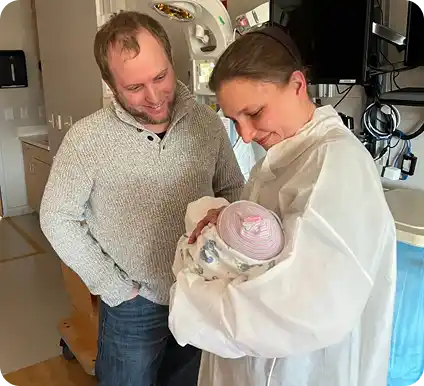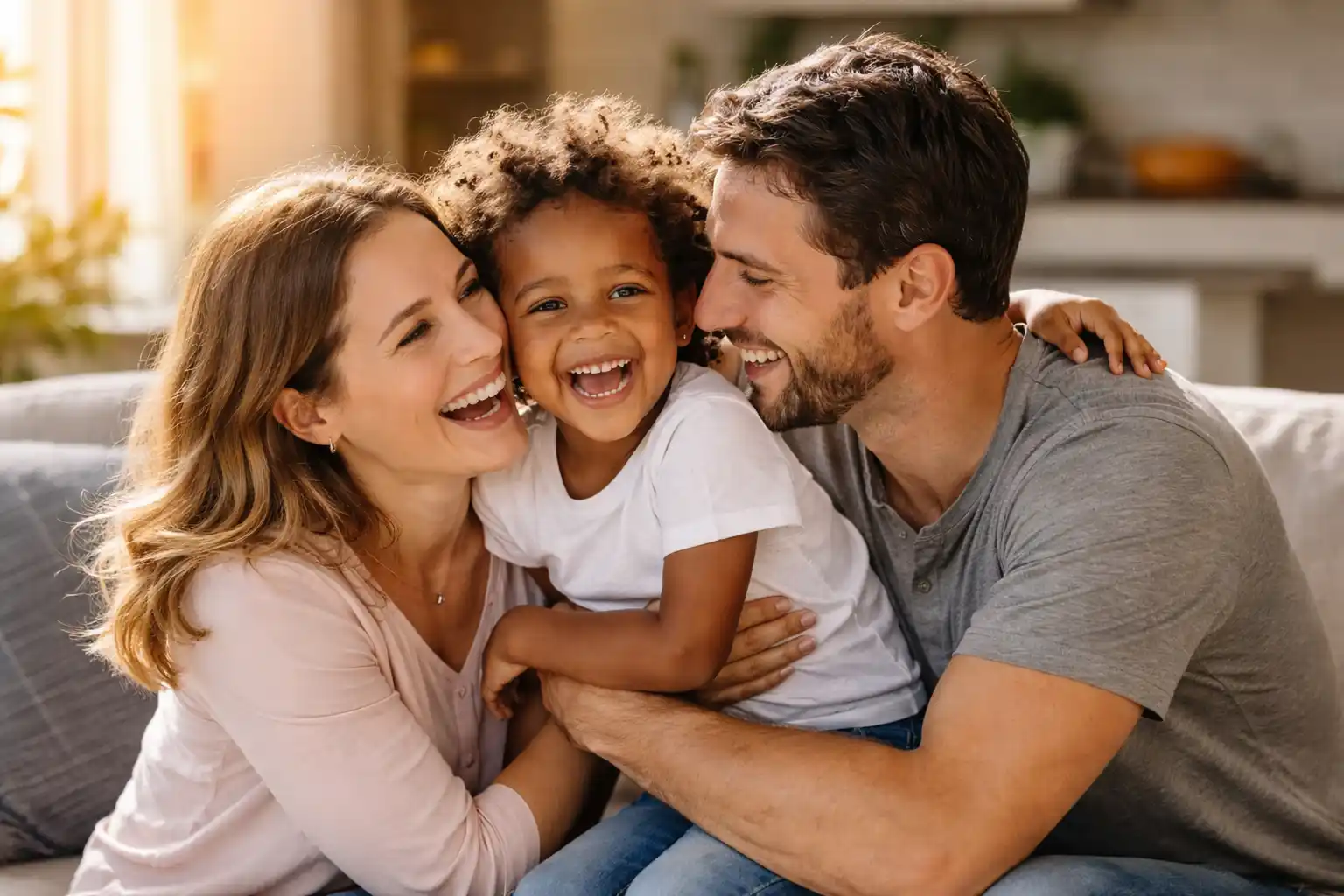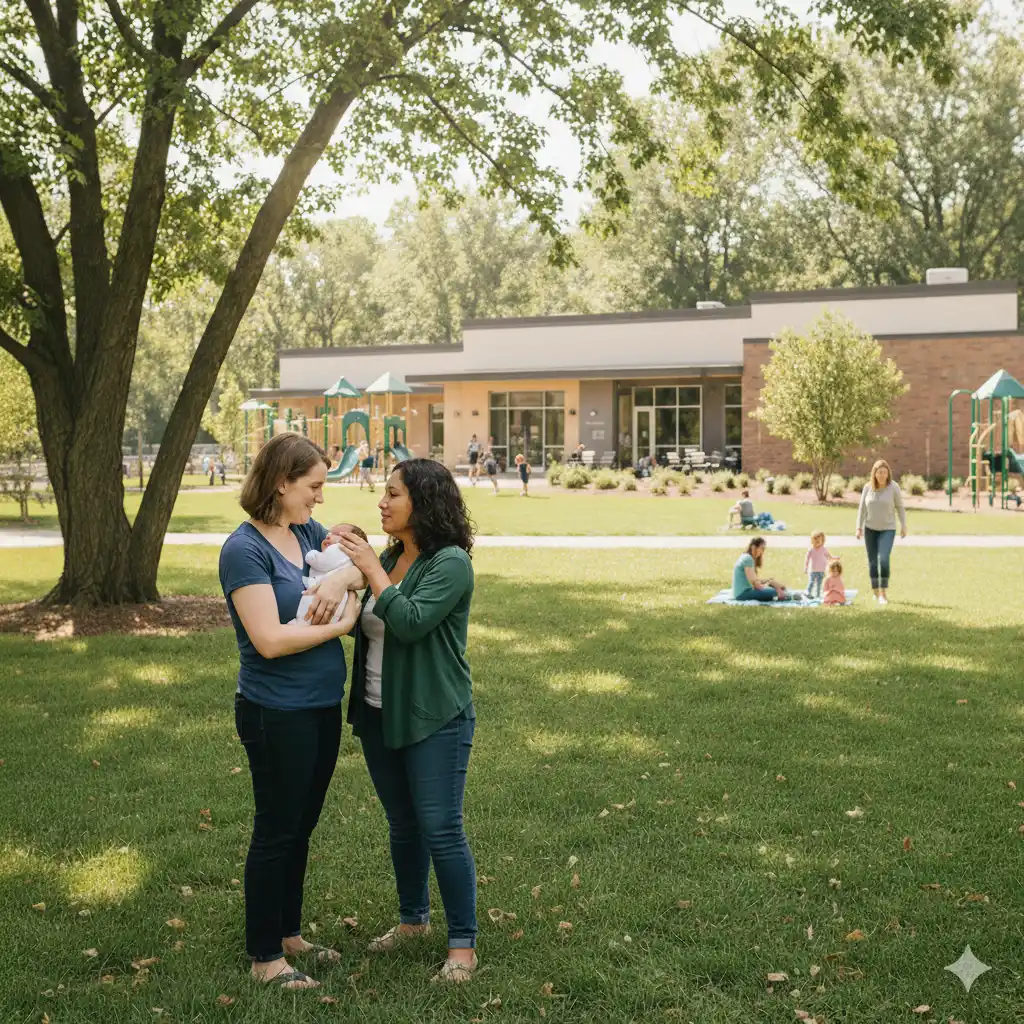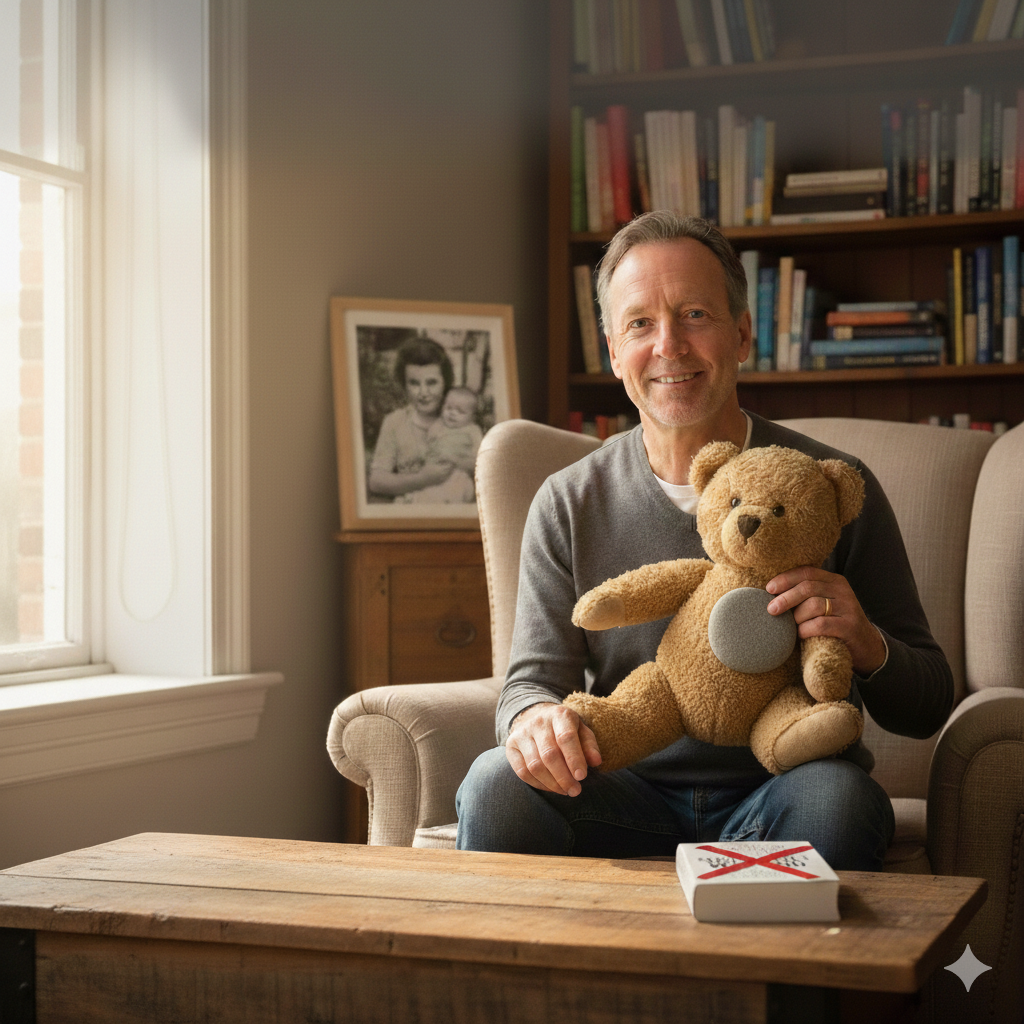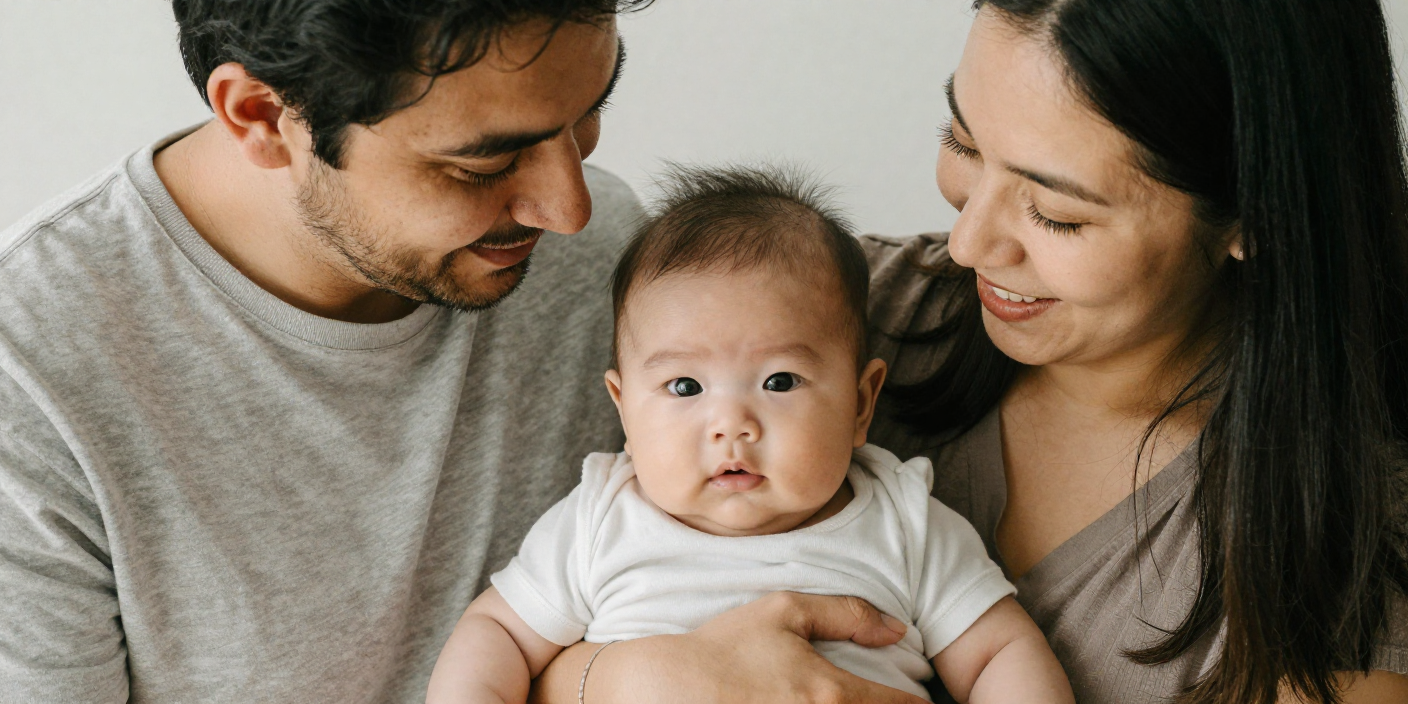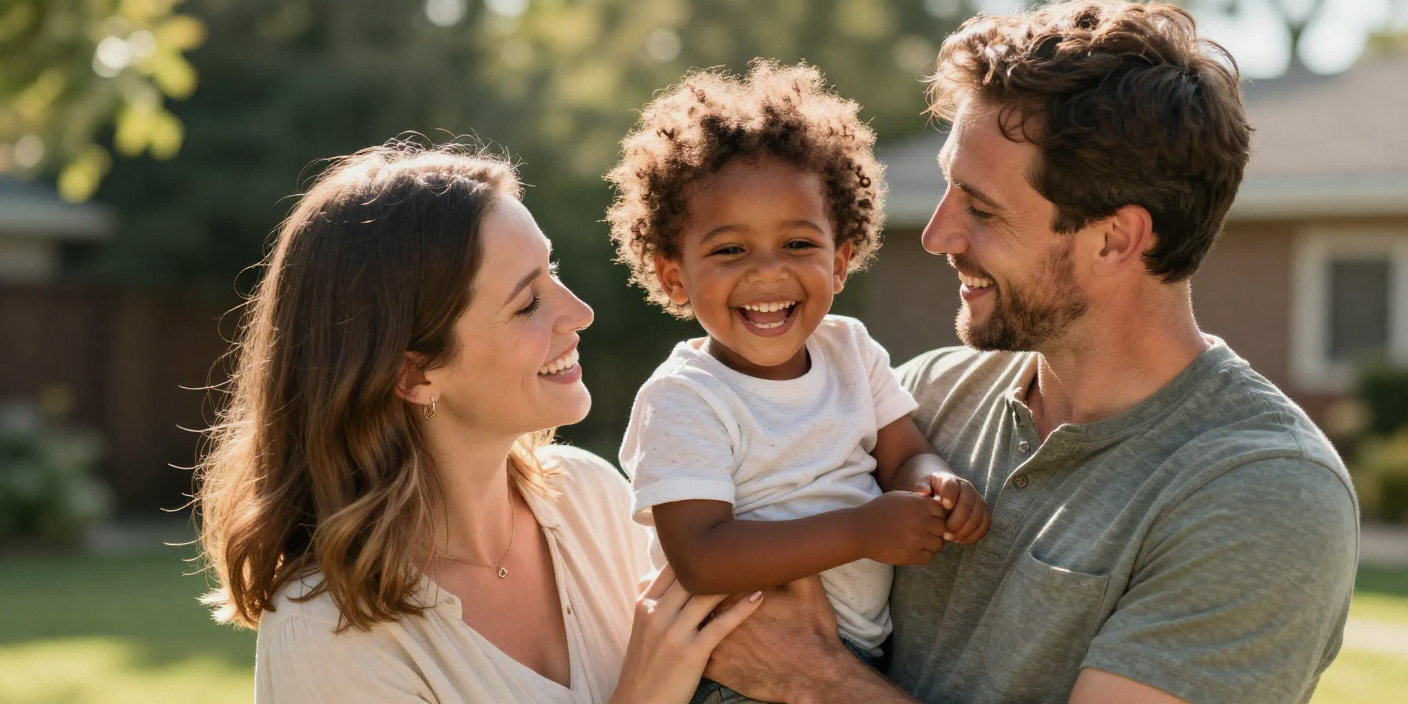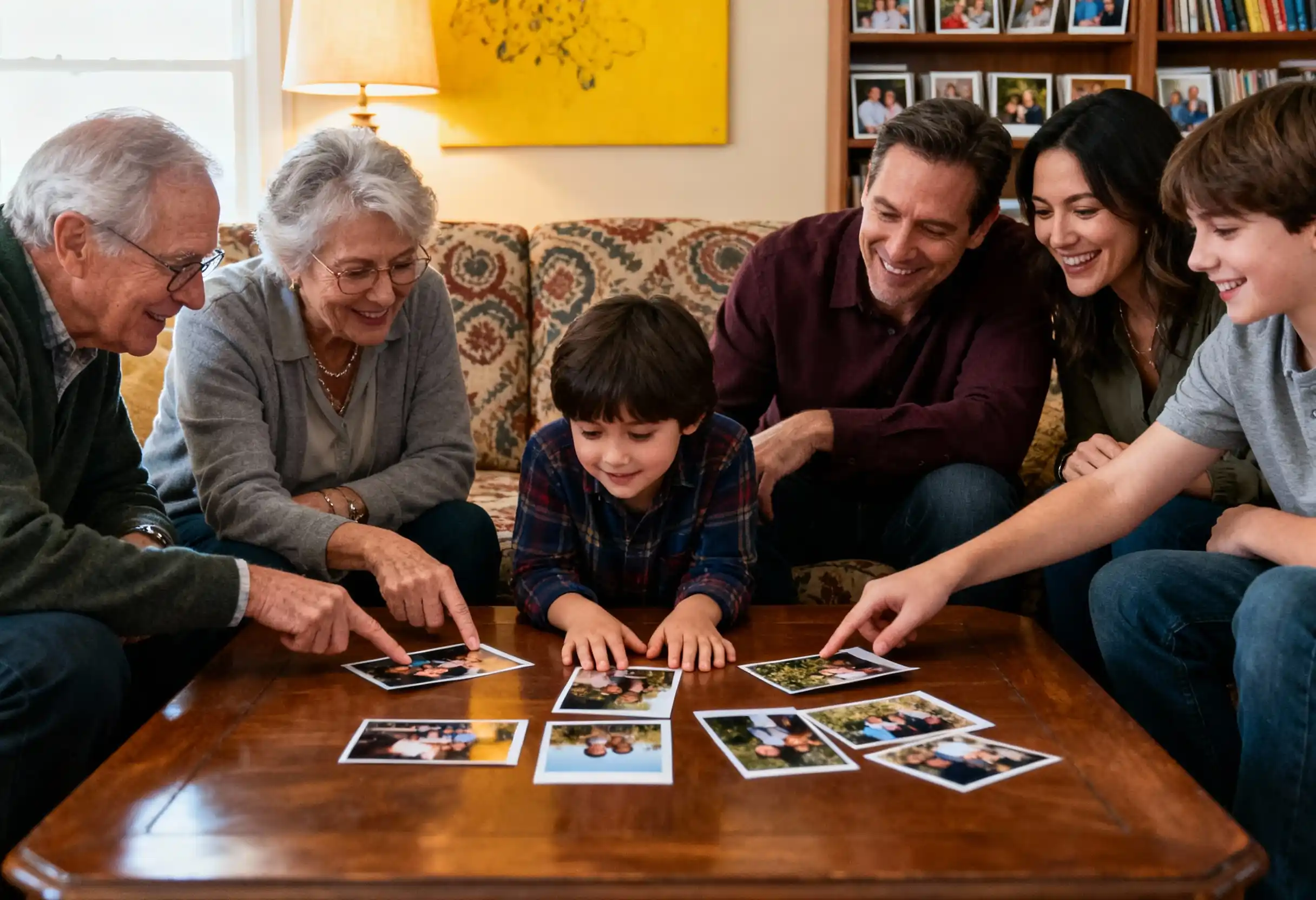A Playwright's 30 Year Journey to Birth Family Reunion (Part 2)
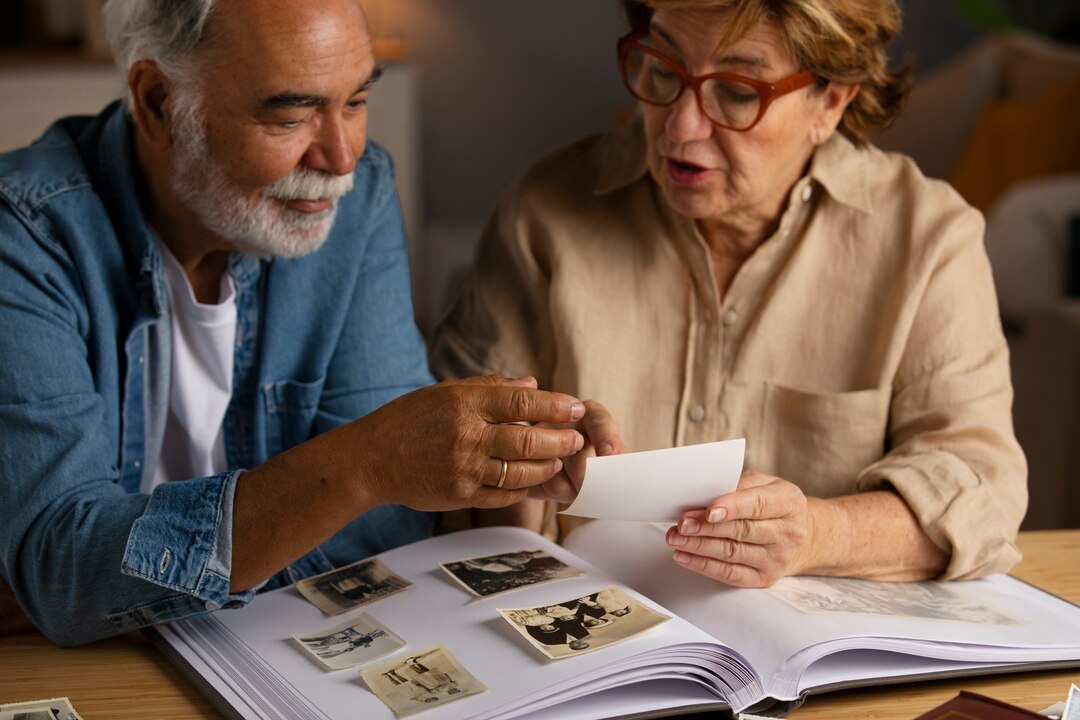
This is Part 2 of our conversation with Anthony Akerman. If you missed Part 1, where we explored his late adoption discovery and complex reunion journey, catch up www.VoicesOfAdoption.org before diving into this continuation of his remarkable story.
In the second half of our conversation with South African playwright Anthony Akerman, hosts Donna Pope and Nathan Gwilliam delve deeper into the healing aspects of his adoption journey. While Part 1 focused on the discovery and reunion challenges, Part 2 reveals how Akerman transformed his adoption trauma into a source of strength, ultimately embracing his identity as what he calls a "lucky bastard."
The Journey from Shame to Acceptance
Akerman's choice of title for his memoir wasn't accidental - it represents a deliberate reclamation of language that had caused him shame since childhood. The word "bastard," historically used to describe illegitimate children, carried weight that haunted him from the moment he learned about adoption at age 10. "The word bastard, as I told you how I'd encountered that word as a kid and had been told that a bastard is an illegitimate child and that bastards were believed to be inherently evil," he explains, describing childhood fears about being condemned to some terrible fate.
But like many in marginalized communities who reclaim derogatory terms, Akerman decided to own this label. Drawing parallels to how the LGBTQ+ community transformed "queer" from insult to identity, he sought various ways to incorporate "bastard" into his book title. The breakthrough came from his wife's creative insight during their brainstorming sessions. "She said lucky bastard and I thought well it's true because I am a lucky bastard," Akerman recalls, recognizing that despite decades of challenges, his story contained extraordinary fortune.
The "lucky" designation reflects not just his reunion success, but the broader perspective that comes with age and healing. At 76, Akerman can appreciate having two families, gaining a wonderful sister and 19-year-old niece who treats him as an uncle rather than the grandfather he could have been. His story includes remarkable coincidences - studying at university 600 miles from home alongside an unknown first cousin, sitting in English lectures for three years with his biological aunt, being taught by a professor married to another cousin. These near-misses that many adoptees fear became part of his "lucky bastard" narrative, evidence of invisible connections that existed long before formal reunion.
Trauma Patterns and Therapeutic Breakthroughs
One of the most significant insights in Part 2 involves what Pope describes as "the body never forgets" - the concept that early separation trauma creates lasting patterns even when conscious memory doesn't retain the experience. Akerman's story validates this theory through his recognition of repetitive relationship patterns that dominated his adult life. "I would always choose to become romantically involved with people who were likely to abandon me," he reflects, describing a self-fulfilling prophecy that played out across multiple marriages and relationships.
The breakthrough came through therapy after his third marriage ended. When his therapist mentioned low self-esteem, Akerman initially resisted the diagnosis, citing his professional awards and achievements. But her response cut through his defenses: "If you didn't have low self-esteem, why did you let your ex-wife treat you the way she did?" This moment of recognition led to understanding what therapists call "repetition compulsion" - the unconscious drive to recreate familiar patterns, even destructive ones. "You're actually always choosing your birth mother who abandoned you," his therapist explained, connecting his relationship choices directly to his earliest trauma.
The pattern extended beyond romantic relationships to his experience at boarding school, which Akerman now recognizes as a secondary abandonment. Sent away at 13 to follow family tradition, he experienced being "dumped there by my adopted parents" as confirmation that he could be thrown away again. His response included rebellion, self-sabotage, and academic underperformance despite his intelligence. The combination of natural teenage identity struggles with adoption-specific questions about belonging created what he describes as an exacerbated identity crisis that nobody at the time understood as adoption-related.
This therapeutic work eventually enabled Akerman to break his destructive patterns and develop the healthy relationship he maintains today. Meeting his current wife after working through his abandonment issues, he describes himself as no longer "walking wounded" and therefore capable of the partnership that has sustained him for over twenty years. The transformation illustrates how understanding adoption's impact can lead to genuine healing rather than simply managing symptoms.
Finding Universal Themes in Adoption Stories
As a professional storyteller, Akerman brings a unique perspective to adoption narratives throughout literature and culture. His analysis reveals adoption themes in classics from Oedipus Rex to Moses, from Tom Jones to Wuthering Heights, suggesting these stories resonate because they touch universal human experiences of belonging, identity, and family connection. "Stories of adoption and adoptees crop up a lot in literature," he observes, tracing patterns from ancient texts through modern entertainment.
His interpretation of Oedipus as an adoptee offers fresh insight into the classic tragedy. "Had he known that they weren't his real parents," Akerman notes, the prophecy's fulfillment might have been avoided entirely. Oedipus fled from his adoptive parents to avoid killing his father, only to encounter and kill his biological father at a crossroads, then marry his biological mother in Thebes. The story becomes a meditation on how sealed adoption records and hidden identities can create the very tragedies they're meant to prevent.
The adoption theme extends from ancient literature through religious texts - Moses in his basket, figures from the Bhagavad Gita - to modern stories including Luke Skywalker and countless contemporary narratives. These recurring patterns suggest that adoption stories speak to fundamental questions about destiny, identity, and belonging that transcend specific cultural contexts. For Akerman, recognizing these universal themes helped normalize his own experience while providing language and frameworks for understanding his journey.
The process of writing his memoir became another form of storytelling therapy. "Writing is a process of discovery," he explains, noting how committing experiences to paper revealed insights that remained hidden while ideas "swirled around in your head." The act of constructing narrative from lived experience allowed him to find meaning in events that had seemed random or purely painful, transforming his adoption story from tragedy into a more complex tale of growth and eventual acceptance.
Supporting Adoptees Through Complex Journeys
Drawing from his decades of experience, therapy, and eventual healing, Akerman offers concrete guidance for other adoptees struggling with similar challenges. His advice emphasizes both the importance of seeking information when possible and the value of therapeutic support in processing complex adoption emotions, regardless of reunion outcomes.
For adoptees considering search and reunion:
Pursue available information and records when accessible, understanding that knowledge itself can provide closure even when relationships don't develop as hoped
Prepare emotionally for various outcomes while maintaining hope for positive connections
Recognize that reunion relationships often involve ongoing challenges rather than immediate resolution
Understand that multiple attempts at relationship building may be necessary over time
For understanding adoption's psychological impact:
Recognize how adoption affects behavior patterns, relationship choices, and emotional responses
Seek professional therapy specifically addressing adoption issues to break cycles of "repetition compulsion"
Understand that adolescent identity struggles are often exacerbated for adoptees who lack genetic and cultural connections
Accept that some birth parents may have their own trauma and limitations affecting relationship potential
For building support systems:
Connect with other adoptees through support groups, literature, and shared experiences
Read adoption memoirs and psychological literature to understand common patterns and normalize the adoptee experience
Find adoptee-competent therapists who understand the unique challenges of adoption trauma
Share stories openly rather than maintaining secrecy, which can perpetuate shame and isolation
Akerman's emphasis on embracing adoption stories rather than hiding them reflects his belief that openness leads to healing. His decision to use real names in his memoir and discuss the difficult aspects of his birth family relationships provides perspective for others facing similar challenges. "I've got no scores to settle," he explains, emphasizing that his goal involves telling his story honestly to help others understand adoption's complexities rather than seeking revenge or assigning blame.
The conversation concludes with Akerman's reflection on reaching a place of genuine gratitude despite ongoing health challenges, including recent successful cancer treatment. His 60th birthday celebration featuring speakers from both his adoptive and biological families symbolizes the integration he's achieved. Rather than viewing adoption as loss or trauma, he now sees it as the source of having "two families" and the foundation for becoming the person he was meant to be.
Ready to explore more adoption stories and support resources?
The Voices of Adoption podcast continues bringing these important conversations to light, helping adoptees, birth families, and adoptive families navigate their journeys with greater understanding and realistic expectations.
Listen to the complete two-part interview with Anthony Akerman on the Voices of Adoption podcast, hosted by Donna Pope and Nathan Gwilliam.

